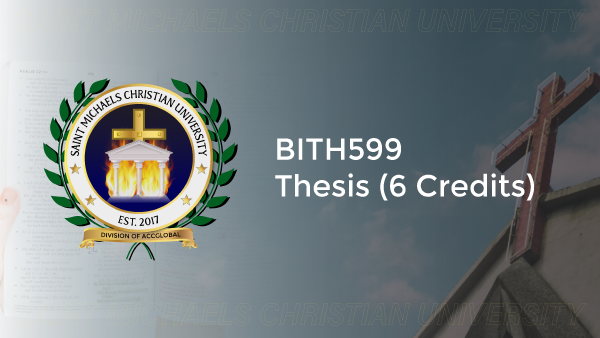Overview
Course Description:
This course introduces students to the major movements and thinkers, theologians and philosophers in the Christian tradition since the eighteenth-century Enlightenment, together with an examination of tgheir philosophical backgrounds. Part I: Barth through Tillich. Part II: Vatican II to postmoderm theologies.
Course Objectives:
Upon the completion of this course, students will be able to:
Know the major trends in contemporary theologies
Understand the presuppositions (philosophical and otherwise) that generate such modern theologies.
Recognize and defend against such views.
Better comprehend orthodox positions through analysis of errant views.
Course Requirements
-
Technical Requirements
download and install a browser other than Microsoft Internet Explorer. We suggest Firefox or Google Chrome.
The E-learning system performs better with Firefox or Google Chrome browsers. -
Academic Requirements
Lessons (15%): Complete the weekly lessons
Quizzes (25%): Complete the weekly quizzes. Quizzes are based on materials from weekly lessons and reading assignments.
Final exam (25%).
Assignments (35%):
1- Write your personal testimony in 2-3 pages.(See Appendix 1, in The Art of Personal Evangelism, p.235)
2- On three different occasions, share the Gospel with at least three different people.If at all possible, do this evangelism under the observation of an experienced student or layperson.
3- Summarize “The Complete Book of Discipleship” by Bill Hull and “Church Evangelism” by John Mark Terry into a 3-5 pages Evangelism Plan for your congregation. The plan should (1) aim at getting everybody involved in Evangelism, using different evangelism methods or activities
(2) inccorporate a church wide discipleship plan.
- Grading Scale
A = 94-100 Excellent
B = 84 – 93 Above Average
C = 74 – 83 Average
D = 64 – 73 Below Average
F = 63 & Below Failure
Required Textbooks

Modern Christian Thought
James C. Livingsto…
Best Price $26.99
or Buy New $35.45

The History of Western Philosophy
Bertrand Russell
Best Price $4.66
or Buy New $14.50
